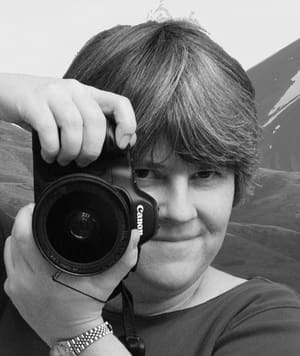The recent Washington Post article titled “Soul-Searching on Facebook” addressed how one question facing people who are setting up their Facebook profiles (“Religious views:”) has sparked all sorts of quandary and deep thought—surprising, in a cyber-venue which otherwise elicits light-hearted communications and flippant retorts. Though many simply do not answer the question, over 150 million of Facebook’s 250 million users fill it in with something. Summing up one’s spiritual identity in 100 characters or less is difficult, but the very nature of the medium requires it, unless one is to check one’s beliefs at the gateway. But this spiritual sense is part of one’s identity—and apparently a big part, for many people. So how do we answer such a question in virtual life?
Unsurprisingly, the most common answers are “Christian” and various subcategories thereof (“Protestant,” “Catholic” and specific denominations). Next is “Islam,” followed by “Atheist.” Other surprisingly popular answers: “Jedi,” “Seguidor del Wiccanismo” (Spanish for “follower of Wiccan”), and “Heavy Metal.” Interestingly, quite a number of people online identify themselves as “Amish.” It seems an oxymoron, as if these people were being facetious. Perhaps this segment of the user base represents Amish young people in their exploratory period of living outside the community, which no doubt includes trying modern technology.
The free-form field is great, because it doesn’t force people into a multiple-choice box but allows them to get creative. Here are some of the more interesting answers people have given: “Love God, Love Others, Change the World;” “Pastafarian” (a reference to the spoof religion that worships the “Flying Spaghetti Monster“); “Matthew 25” (a passage in which Jesus calls his disciples to feed the hungry, clothe the poor and visit the imprisoned); “Agnostic, but accepting offers;” “I barely believe I exist;” and “Colorless green ideas sleep furiously” (a grammatically correct but meaningless sentence chosen to represent how someone’s faith could at one moment seem to make sense, and in the next, not). Among my own Facebook friends, I’ve found these: “a seeker of beauty, experience and the Divine;” “yes;” “Branch Davidian” (tongue firmly in cheek); and this quote from Jane Austen: “Everybody likes to go their own way—to choose their own time and manner of devotion.”
When faced with a question that requires us to coalesce complex thoughts and doubt-filled commitments into a single phrase, perhaps the “It’s Complicated” answer (one of the options available for “Relationship Status”) would fit many of us well. Some people would want to put an asterisk with their faith identity, to point out to their Facebook friends that they aren’t like all those other stereotypical Catholics or Evangelicals or whatever.
It seems our beliefs are more nuanced these days than in the past. Perhaps that is due in part to our greater exposure through the Internet to people of differing religious views. Walls between denominations have been dissolving. Many Christians today have participated in multiple different congregations of varying stripes. Furthermore, the postmodern milieu in which we live makes many of us hesitant to stake our claim on just one denomination above all others.
Social networking sites like Facebook sometimes enable people to identify more closely with a particular small spiritual (or political) niche, but I believe they also free us up to find commonality with others. The interesting question is this: how do we represent this core dimension of ourselves to others in a curtailed fashion such that it opens doors to conversation, rather than closing them and putting up walls? The response of one of my friends points to this difficulty: “Is ‘views’ the right word?”
I interface with so many different people on Facebook—people who knew me from work, school, church, community and so on. I could not think of one single answer that would be how I’d want to represent my faith to all of them, so I left it blank. I might still someday come up with a great pithy answer, but for now, I’m not expressing my religious views online in Twitter-like succinctness. I’m online all over the place expressing my faith, but if people want to know what I believe, they’ve got to get to know me better than just Facebooking with me. Sitting down over a cup of coffee would be preferable.

